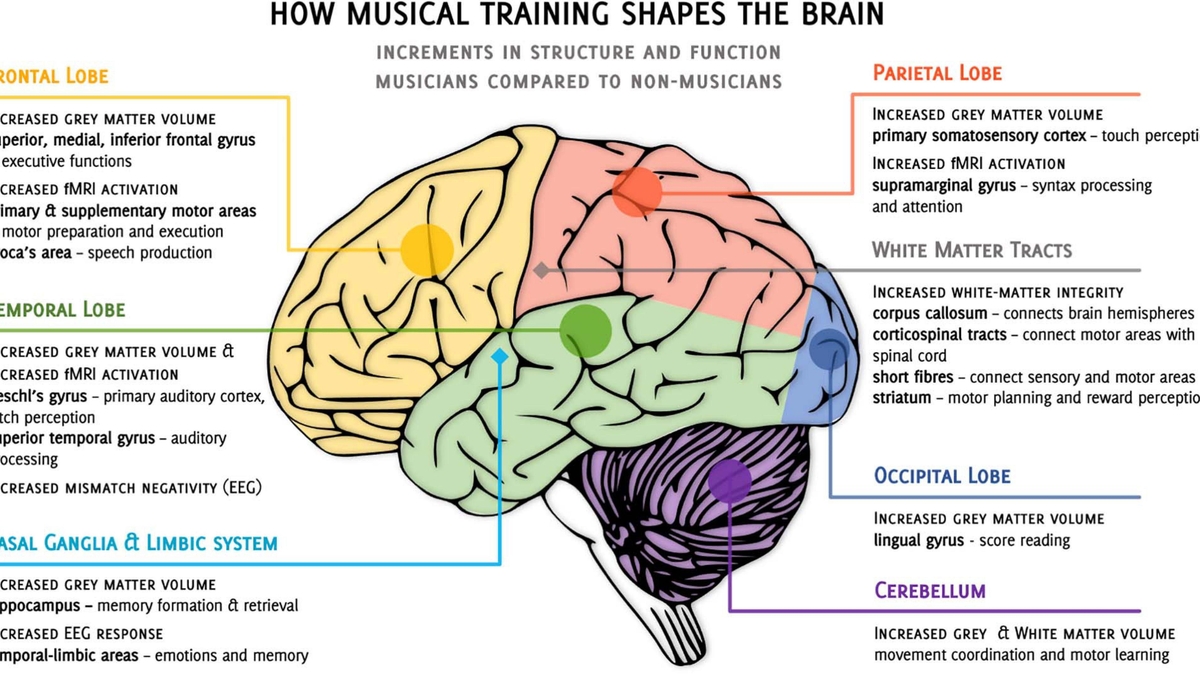
The Brain-Dance of Electronic Music
Electronic music, with its rhythmic beats and complex harmonics, has a peculiar ability to alter our reaction time and sense of unity. This intriguing phenomenon is rooted in the way our brain neurons fire in time with the music beats, creating an altered state of consciousness. This could lead to groundbreaking implications in improving treatments for various consciousness-related conditions and reducing stress during medical procedures.
Neurological Impact of Music
Previous studies have shown that music, particularly electronic music, can have a profound impact on the human brain. This impact primarily relates to neurons, the brain’s electrical signaling system. As the beats of the music play, our neurons begin to fire in time with the rhythm. This rhythmic neuronal activity leads to an altered state of consciousness, creating a unique sense of unity and altered reaction time.
Oligodendrocytes: The Unsung Heroes of Brain Function
A study led by neuroscientists at the University of Zurich has brought to light the vital role of oligodendrocytes in brain function. Oligodendrocytes are crucial for insulating nerve fibers, and they have been found to play a significant role in detecting and responding to electrical signals from nerve fibers. They increase their energy intake in response to these signals, supplying energy-rich molecules to active axons. This discovery enhances our understanding of the brain’s electrical signaling system and how it might be influenced by external stimuli like electronic music.
Podcasts and Web Resources on Brain Science
For those interested in learning more about brain science and its connection to music, the podcast ‘From Our Neurons to Yours’ is a great resource. This podcast explores new discoveries, treatments, and technologies that are transforming our relationship with the brain. It is provided by the Wu Tsai Neurosciences Institute at Stanford University, a leading institution in neuroscience research.
The Future of Brain-Computer Interfaces
Brain-computer interfaces (BCIs), also known as brain-machine interfaces, represent a new frontier in neuroscience. Companies like Neuralink, BrainGate, Synchron, and Clinatec are making significant strides in this field. BCIs are chips implanted in brain tissue that translate brain signals into commands. These interfaces have the potential to revolutionize therapies for patients, particularly those with neuromuscular conditions. While the timeline for widespread adoption of BCIs is uncertain, estimates suggest it could be within the next 5 to 8 years.
Conclusion
The connection between electronic music and brain function offers exciting possibilities for both medical treatments and stress reduction. As we continue to learn more about brain function and the influence of external stimuli, we may uncover new ways to enhance mental health and wellbeing. So, next time you listen to your favorite electronic music track, remember: you’re not just enjoying the beat; you’re also engaging your brain in a unique neuronal dance.
